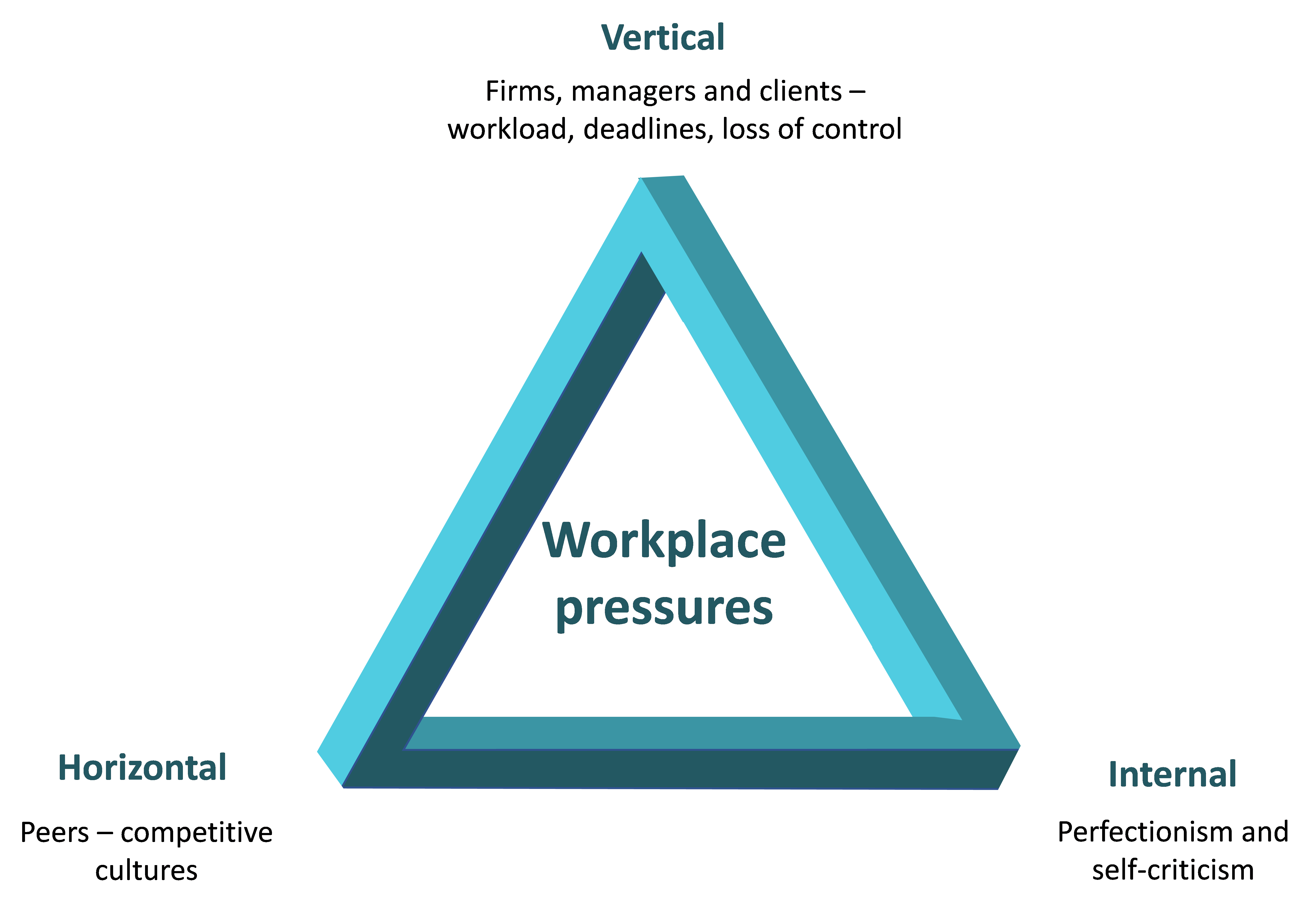To be able to effectively tackle the challenge of improving lawyer wellbeing, we first need to understand the barriers that lawyers face in seeking help.
Fear of speaking up
There are many factors that contribute to poor wellbeing outcomes for lawyers. However, it’s often the historic contributors, including negative early career experiences, that continue to inhibit people from speaking up or asking for help.
Historically, poor mental health was considered a personal weakness, a workplace liability and a barrier to promotion. This stigma lingers for some, as shown by many lawyers’ reticence to talk about mental health at work (56.5% in the Lawcare report and 41% in the IBA report). Reasons for this reluctance include fear of not being believed, fear of humiliation, fear of being treated differently, potentially negative career consequences, and employers not recognising wellbeing issues.
Workplace pressures and cultural challenges
Lawyers experience workplace pressures from many directions, as illustrated in the diagram below. While these pressures affect lawyers differently, they can contribute to reluctance to seek help for fear of making the situation worse, appearing ‘less than perfect’ or facing regulatory consequences.

Triangle visual diagram representing the workplace pressures on each corner.
- Vertical pressure (top corner): firms, managers, and clients – workload, deadlines, loss of control.
- Horizontal pressure (left corner): peers – competitive cultures.
- Internal pressure (right corner): perfectionism and self-criticism.
‘Vertical’ and ‘horizontal’ pressures are influenced by workplace culture. These cultural factors can also create barriers for lawyers seeking wellbeing support.
In our 2021 survey looking at how workplace culture affects wellbeing, lawyers identified factors that most commonly contributed to negative wellbeing experiences. These were unreasonable workloads (49%), poor work-life balance (46%), long work hours (42%), hypercritical culture (41%), and a lack of collegiality (40%).
A culture of overwork, measured in both hours worked and work volume, can make it very challenging for lawyers to make the time for themselves to get help. Overwork can also result in people lurching from one crisis to another, which can affect their perspective of their own needs.
Other factors that had a negative impact on wellbeing, particularly for women, pertained to ‘cultural’ issues within the workplace. For example, women more commonly selected factors such as hypercritical cultures, valuing profit at the expense of people and bullying as having a negative impact on their wellbeing. When these negative attributes prevail in a workplace culture, it can add to lawyers’ reticence to talk about wellbeing issues at work or to seek help elsewhere.
Other cultural barriers, as discussed in our Lawyer Wellbeing Report, include the acceptance of bullying and sexism, poor managerial training and a lack of support resources, such as EAP services.
Support from the regulator
No one should be deterred from seeking help for poor wellbeing.
VLSB+C supports lawyer wellbeing and we provide a wide range of links to wellbeing resources and referral agencies on our website.
Under our Mental Health Policy, we do not require lawyers to disclose mental health or wellbeing issues unless they affect their ability to carry out their role. That requirement is not intended to be punitive – we want to support lawyers as people and as professionals, while also protecting the interests of the people they represent and work with.
Where a lawyer’s poor wellbeing is affecting their ability to carry out their role, our first step is to talk to the lawyer to find out what’s going on, what help they need, and what needs to be done to ensure their clients are receiving the appropriate level of service.
We also encourage all legal workplaces to improve lawyer wellbeing.
For more information about our research, projects and other initiatives to improve lawyer wellbeing, email lawyerwellbeing@lsbc.vic.gov.au.